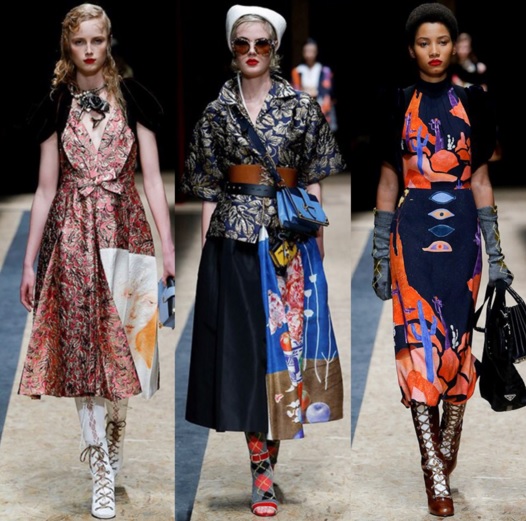Fashion and Beauty
Italy’s fashion elite resists tendency toward fast fashion

Milan Fashion Week.
(Photo courtesy of Vogue UK’s official Twitter account)
MILAN—Behind the scenes at Milan Fashion Week, the industry’s future is shaping up to be a game of fast vs. slow fashion.
Word has rippled across the Atlantic Ocean and the English Channel of a movement to speed up the fashion cycle and strut runway creations straight into store windows and consumers’ shopping bags. But that notion faces resistance in the Italian fashion system.
Italy, after all, gave birth to the slow food movement in the late 1980s after the arrival of the first McDonald’s in the heart of Rome, seen as an affront to the nation’s world renowned tradition of culinary excellence. So, too, is this new interpretation of fast fashion an anathema to Italian craftsmanship.
Carlo Capasa, president of Italy’s fashion chamber, said Italian fashion is driven by “a spirit to create desire,” whereas fast fashion is “to satisfy a need.”
“The different between creating a desire and satisfying a need is the difference between slow fashion and fast fashion,” he said.
Not only does it take time and research to create fashion innovations—both in terms of innovative designs and new techniques—it takes time for the public to fully grasp them, he said.
“Because if a creator is a true creative, he is proposing something that doesn’t really exist,” he said, making the incubation period between presentation and sale important “for people to understand the message.”
Mario Boselli, the honorary chairman of Italy’s fashion chamber, views the debate as a contrast between the U.S. and U.K. business models in the fashion industry and the approach favoured by the French and Italians.
“New York has always been the land of branding and marketing. We and France, we are more the area of creativity and manufacturing,” Boselli said. “I think the logic is different. They follow their interest, we follow ours.”
And what if consumers can’t wait?
“The world is wide and varied,” Boselli replied.
Designers themselves see an inherent danger in immediately gratifying the push for novelty, what Ennio Capasa, the founder of Costume National, called “the crisis of Twitter” that has caused youth to quickly grow tired of things.
“The risk of satisfying the market is to not spark emotions. The system becomes flat, less emotional. It does not favour us designers,” said Ennio Capasa, who is also the fashion chamber president’s brother.
For Fausto Puglisi, an Italian designer who first found success in the United States, the idea of shortening the cycle is wearying.
“People should understand, if you make something that is about research and luxury and beauty, it needs time,” Puglisi said. “I don’t understand what is going to happen in the future. We can kill ourselves.”
One compromise could be to get select items straight to the consumer. In that vein, Prada has announced that two bags will be available immediately in its Milan, Paris, London and New York stores after Thursday’s preview show.
“This is another story,” Carlo Capasa said. “This is communication. If that becomes a form of communication, this is good.”





















